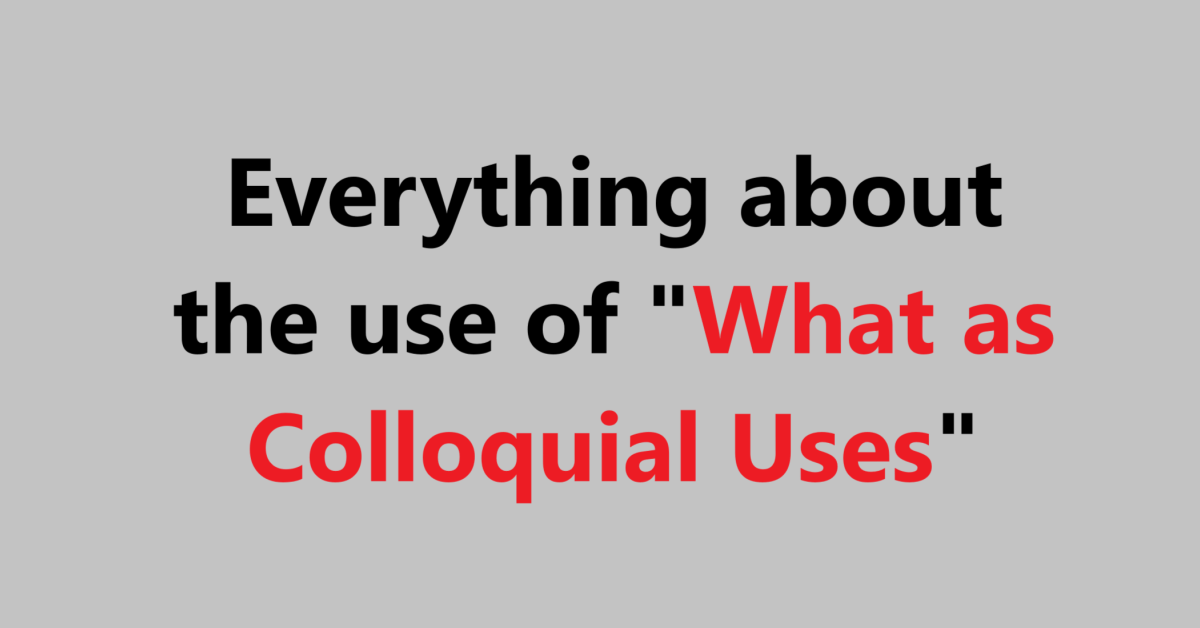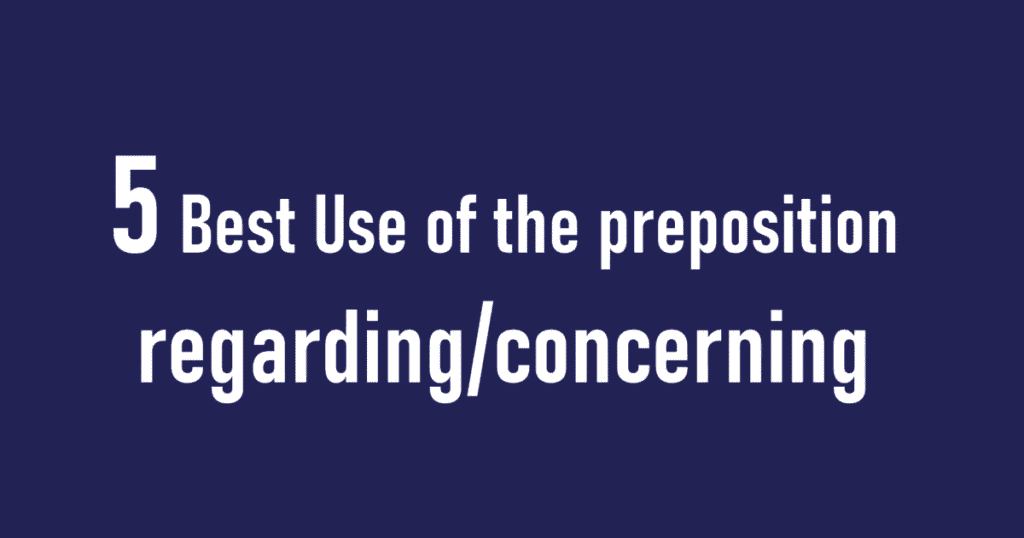Using “what” in colloquial English serves a variety of informal functions that can enhance conversation and express emotions. Here’s a detailed breakdown of its colloquial uses:
1. Expressions of Surprise or Amazement
- Example: “What?! I can’t believe you won the lottery!”
- Function: Here, “what” acts as an expression of surprise, often conveying disbelief or astonishment.
2. Seeking Clarification
- Example: “Wait, what? Can you say that again?”
- Function: Used to ask for repetition or clarification, “what” indicates that the speaker didn’t quite understand the preceding information.
3. Informal Agreements or Affirmations
- Example: “What you said is totally right.”
- Function: In this context, “what” is used to affirm or agree with a statement made by someone else.
4. Disbelief or Challenge
- Example: “What are you talking about? You can’t be serious!”
- Function: This use challenges or questions the validity of a previous statement, reflecting confusion or skepticism.
5. Emphasis on Importance
- Example: “What matters is that we stick together.”
- Function: Emphasizes a specific idea or value, highlighting its significance in the discussion.
6. Casual Invitations for Discussion
- Example: “So, what do you think about the new project?”
- Function: Used to invite conversation or opinions about a certain topic, making the conversation feel more relaxed.
7. Expressing Frustration or Confusion
- Example: “What the heck is going on here?”
- Function: Here, “what” is used to convey exasperation or confusion about a situation.
8. Starting a Story or Anecdote
- Example: “So, what happened was…”
- Function: This phrase often acts as a conversational opener, setting the stage for a story or personal experience.
9. Colloquial Alternatives in Questions
- Example: “What’s up?”
- Function: This is a common greeting asking about someone’s well-being or what they are doing, replacing more formal inquiries.
10. Shortened Responses
- Example: “You just got engaged? What?!”
- Function: In casual dialogue, “what” can stand alone, serving as a concise response to surprising news or information.
11. Combining with Other Words for Impact
- Example: “What a mess!” or “What a joke!”
- Function: These phrases use “what” to introduce an exclamatory statement that conveys a strong emotion or opinion about a situation or object.
12. Casual Interruptions
- Example: “What I mean is…”
- Function: Used during conversations to interject or clarify a previous point quickly and informally.
13. Dialogue Tags
- Example: “He was like, ‘What?! That’s insane!'”
- Function: Used in informal storytelling or recounting conversations to represent disbelief or surprise.
Questions and Answers on “What” in Colloquial Uses
Here are 40 questions and answers that illustrate the colloquial uses of “what”:
- Q: What did you think of the movie?
A: Honestly, I thought it was pretty amazing, what a twist at the end! - Q: What’s your plan for the weekend?
A: I was thinking about going hiking. What do you think? - Q: What?! Are you serious?
A: Yes, I really got the promotion! What a surprise! - Q: What did she mean when she said that?
A: I think she meant it as a compliment. What else could it be? - Q: What happened at the party last night?
A: You won’t believe it, but what I heard is that someone did karaoke! - Q: So what’s up with you lately?
A: Not much, just busy with work. What about you? - Q: What are your thoughts on the new policy?
A: What I think is that it might complicate things for everyone. - Q: What’s the best thing about your job?
A: What I love most is the team spirit we have. - Q: What do you mean you forgot the tickets?
A: I know, what a disaster! I totally spaced out on them. - Q: What should we do now?
A: What I suggest is that we grab some coffee and talk things out. - Q: What are you talking about?
A: I’m talking about the concert this weekend. What a lineup they have! - Q: What on earth were you thinking?
A: Honestly, I wasn’t thinking at all, what a mistake that was! - Q: What did he say about the meeting?
A: He said it’s going to be important. What else can we do but prepare? - Q: What time are we meeting again?
A: We’re meeting at 3 PM, what a perfect time for coffee! - Q: What else do we need to consider?
A: What we need to think about is the budget for this project. - Q: What do you find most interesting about your studies?
A: What I find interesting is how everything connects in the real world. - Q: What do you mean by that?
A: What I mean is that we need to be more careful with our resources. - Q: What was your reaction to the news?
A: I was shocked! What a crazy turn of events! - Q: What will you do if it rains?
A: What I’ll do is bring an umbrella just in case. - Q: What do you think makes a good leader?
A: What I think is that empathy and communication are key. - Q: What types of food do you like?
A: I love spicy food. What about you? - Q: What are you up to this week?
A: Just work and maybe some relaxation. What do you have planned? - Q: What did she mean by “we need to talk”?
A: I think it’s serious, what a tense invitation! - Q: What’s wrong with the car?
A: I’m not sure, but what I do know is it’s making a weird noise. - Q: What are your hobbies?
A: I love painting and hiking. What about you? - Q: What did he say about your idea?
A: He loved it! What a boost for my confidence! - Q: What will you do if you win the lottery?
A: What I would do is travel the world and help my family. - Q: What do you think is the coolest trend right now?
A: What I think is that vintage fashion is making a strong comeback. - Q: What kind of music do you enjoy?
A: I enjoy all kinds, but what I love the most is jazz. - Q: What did he mean when he said that?
A: I think he was being sarcastic, what a jokester he is! - Q: What do we need for the project?
A: What we need is a solid plan and good communication. - Q: What was the highlight of your trip?
A: What really stood out was the beautiful scenery! - Q: What makes you smile?
A: What makes me smile is hearing a good joke! - Q: What happened during the meeting?
A: A lot of ideas were shared, but what I found most useful was the feedback. - Q: What’s your favorite memory?
A: What I cherish most is the family vacation we took together. - Q: What’s going on with your friend?
A: What I heard is that he’s going through a tough time. - Q: What did you think of the restaurant?
A: What I thought was the food was delicious, but a bit pricey. - Q: What do you want to do after college?
A: What I want is to travel and gain some experience before settling down. - Q: What are your thoughts on social media?
A: What I think is that it can be both beneficial and harmful. - Q: What did you expect from the show?
A: I expected it to be fun, but what I got was even better!
FAQs on “What” as Colloquial Uses
Here are some frequently asked questions (FAQs) regarding the colloquial uses of “what,” along with their answers:
- Q: What does it mean when someone says “What?!” in conversation?
A: It typically expresses surprise, disbelief, or confusion about something that was just said. - Q: How can “what” be used to seek clarification?
A: You might say, “Wait, what?” to indicate that you didn’t understand or need the person to repeat themselves. - Q: In what scenarios is “what” used as an informal greeting?
A: It can be used as part of a casual greeting, like “What’s up?” to ask someone what they are doing or how they are. - Q: Can “what” express frustration?
A: Yes, phrases like “What the heck?” or “What is going on?” convey confusion or irritation about a situation. - Q: What roles does “what” serve in exclamatory expressions?
A: “What” can emphasize a point, as in “What a beautiful day!” to express strong feelings about the subject. - Q: How is “what” used to introduce anecdotes or stories?
A: You might say, “So, what happened was…” which signals that you are about to share a personal experience. - Q: Can “what” stand alone as a response in conversation?
A: Absolutely! A simple “What?!” can serve as a response to surprising news without needing further explanation. - Q: What does “what I mean is” signify in conversation?
A: This phrase is used to clarify or rephrase something previously said, ensuring the listener understands the speaker’s intent. - Q: How does “what” function in rhetorical questions?
A: In rhetorical questions, “what” is used to emphasize a point without expecting an actual answer, like “What could be more important?” - Q: Can “what” be used to express agreement?
A: Yes, phrases like “What you said is true” can express agreement with someone’s statement. - Q: Is “what” commonly used in both formal and informal contexts?
A: While “what” is flexible, it’s primarily used in informal contexts, though it can appear in casual formal writing. - Q: Can “what” convey emotional reactions in dialogue?
A: Yes, it can express a range of emotions, such as joy, irritation, or surprise, depending on the context and tone. - Q: What are some common phrases using “what”?
A: Common phrases include “What’s going on?”, “What’s the deal?”, and “Whatta way to start the day!” - Q: How does “what” act as a casual invitation for discussion?
A: Asking “So, what do you think about this?” encourages others to share their opinions in a relaxed manner. - Q: Can “what” be misused in conversation?
A: Yes, if overused or used inappropriately, it can come off as dismissive or lacking engagement in a conversation. - Q: What phrases can replace “what” for similar meanings?
A: Phrases like “that which,” “the thing that,” or simply rephrasing can sometimes replace “what” in more formal contexts. - Q: How does “what” help build rapport in casual conversations?
A: Using “what” informally invites interaction and shows that you’re engaged in the conversation, making it feel more friendly. - Q: Is using “what” colloquially more common in any particular dialects or regions?
A: It’s widely used in many English dialects, especially in American English, but variations exist globally. - Q: How does tone affect the meaning of “what” in conversation?
A: Tone significantly impacts interpretation; a questioning tone indicates confusion, while an emphatic tone can express strong feelings. - Q: What impact does using “what” informally have on professional communication?
A: While it can build rapport, excessive informal language can undermine professionalism, so moderation is key.
Summary
“What” in colloquial English enriches conversations by enabling speakers to express surprise, seek clarity, affirm ideas, and invite discussion in a casual manner. Its flexible uses make it a staple in everyday communication, allowing for more engaging and dynamic interactions.

